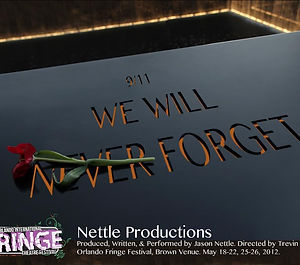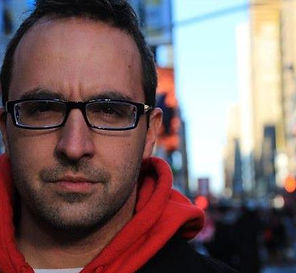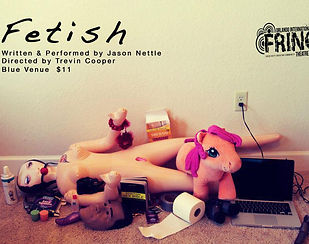I was standing on stage with six of my improvisational friends in a dark, underground theater below the Gristede’s on West 26th Street. It is known as the Upright Citizen’s Brigade. We were 15 minutes into our 25 minute long-form improv show which started off with the suggestion of “mop bucket” and we had the 140 audience members screaming with laughter. This very stage had made celebrities of my teachers and peers in the past 10 years and now they could be seen in sitcoms on every TV network and Saturday Night Live. It seemed it was our turn now and between tag-ins and one-liners and switching from character to character in split seconds, I remember thinking, “I get it now”.
Although none of us were signed by studio executives that night, that feeling I experienced has stayed with me ever since. Basically, I was exposed to an emotion and awareness that had escaped me for years. It was the fact that I was enjoying what I was doing. For months, our improv team had been trying to “get it right” and follow the rulebook and it fell flat in almost every performance. Once we let the idea of pleasing someone go, whether it had been ourselves or the audience, we let the years of training and experience rule and began to trust ourselves.
It might seem like a weird correlation, but that is exactly the same kind of attitude I approach in my teaching and classroom setting. I thought back to the classes I enjoyed while I was in school and they seemed to have the same type of characteristics: fun, engaging, challenging, disciplined, and inspiring. The professor was able to create that atmosphere because of their respect and passion for the material, their respect for the students, the desire to communicate what they were teaching, and they were interesting human beings.
There is a fine line between being a tough teacher who expects the best a student can give and making the classroom a place of unpredictability, humor, and play. I believe because of my years on stage and an enormous amount of improv training, I have found that line and am able to play on both sides when needed. I am convinced the success of a student is in direct relation to how much they enjoy coming to class. There are always variables that we are not in control of such as the subject matter, the personal relationships between the students, and the unknown private lives between classes. I feel my job is to create a classroom that reflects that stage I performed on so many times. It needs to be entertaining, challenging, safe, and rewarding.
One way to achieve this is to set standards which are just above what the student is used to or think they are capable of. These are not standards that are out of reach, but must have a work ethic and discipline to achieve. When the standards are met, the student has built confidence in himself and gives him the tools to apply for future endeavors. When the standards are not met, it creates a window to what might be a weakness the student will have to face. I have been presented with too many students who have been passed on through previous classes doing the exact same thing and they believe the same attitude and nonchalance automatically should give them an A. Somewhere along the way, our society claimed that getting an A is the standard and anything below is grounds for immediate action. I have no problem giving out all A’s, but I want my students to work for them and go away with it as a reward.
There are specific beliefs I hold very close to my heart when it comes to teaching in an acting studio or artist’s classroom. Times have obviously changed and the one obstacle I have added into my curriculum is dealing with the existence of the cell phone and social media. I have no problems that they exist and use them both on a daily basis, but I spent a lot of my graduate work understanding how communication is changing and the younger generation is adapting to the world now. Theatre is storytelling and we tell these stories through our voice and bodies. I believe 80% of communication is now told through short, fragmented words and ideas and the distance of being connected to our feelings and reactions to those have grown further away from what we need on stage. I’m finding that my young acting students are not used to showing emotion because they can hide behind emoticons or they can text something back that the reader is solely responsible for reacting to. I find they are very good at communicating up to 7 inches in front of them but it changes when put on a bare stage in a 1400 seat auditorium. Eye contact has been a very difficult process for some because typing the words “I hate you” is much easier than saying it to someone’s face. The body has become less engaged in communication because people can tell someone off via text in front of the TV during commercial breaks while lying on the couch. I add meditation to my syllabus because the world is moving so fast around them that slowing down and being aware of every single nuance can really help someone’s growth as an actor.
When I was learning improv, I was amazed at how many rules there were when performing long form comedy. These rules were set in place to keep us on a forward track without questioning so many things. We had the yes…and, but soon added “don’t talk about characters not on stage”, “don’t be pessimistic in a scene”, and the list goes on and on. Once we became advanced improvisers, we were allowed to break these rules and could because we knew how to without hurting the scene. Most of the time, we never broke the rules because we found out it was harder to make a good scene. As much fun as I’m looking for in my classes, I believe rules must be set in place for the good of the students. Some look at them as punishment but there is a method to my madness. One reason I set rules in place is to set up an equal playing field for the students. I want the students to feel empowered and that their time is equal to those around them. A class that starts on time with everyone there sets the idea that we are doing important work. Assignments are turned in on time or there is a penalty. Assignments are also finished to the expectations listed in the syllabus and will be marked off if not. What I have come to find out, just like in improv, once the students get in the rhythm of the rules and find out they will be punished and miss out on the energy of the class, they go out of their way to not break the rules. It has really set a nice standard in every class I’ve had and believe success has risen because of it.
I have gone back and forth between my beliefs about the classroom and what I do specifically to make these beliefs become real. There are a couple philosophies in which I believe are one and the same. The professors who left a lasting impression on me all held the same characteristics that I have fought hard to make part of my personae. First, they were masters at what they were teaching. Having the material as part of your nature makes teaching it a 1000 times easier. It’s easier to adapt to different students and the way they learn. It’s easier to improvise on a theme and use examples that the students can relate to without becoming confusing. Second, each professor was open to the idea of learning from their students and sometimes muttered the phrase, “I don’t know”. Acting, Theater, and art is constantly changing and moving in different directions and every student’s view is part of that change. Being a drill sergeant and incapable of being moved causes the students to feel like they are preached at and end up closing off.
Another characteristic is they were always able to relate what we learning to a bigger picture. I have had numerous students tell me the reason they enjoy my class is because they don’t feel like they’re wasting their time. Putting students through mundane exercises just because that’s what the teacher did when they were in school can actually backfire. The passion and energy for what the teacher is going through can be contagious. If a student is confused, I believe it is important to give an example and connect it to something they do understand or hint at where it might be going.
Lastly, I believed in the philosophy of my teachers who did their best to stand out of the way to make the student feel like they were the most important person in the room. I’ve had many teachers who ran the class to fill their own ego. I want to be the teacher that teaches the student how to swim and takes them to a pool and lets them go and have them figure it out for themselves and if they run into any problems, I’ll be there to help them. I don’t want to be the teacher who is in the pool with them telling them what they’re doing wrong. Again, it’s a fine line. Although, it’s just as important to empower a student with confidence as it is to tell them what they did wrong.
This leads me to my final thought and the foundation of being an acting professor. Stanislavski stated “the person you are is 1000 times more interesting than the best actor you could hope to be”. Everything that I have stated above funnels down to getting the acting student to do this: Be the best person he/she can be. I am drawn to so many personalities and quirks in people and for some reason they leave them in the dressing room on the way out to the stage. My curriculum and syllabus not only hits the theories of acting and analysis of scenes, but to help the actor be confident in how amazing they are as a human being and how they can bring that to their art. It’s why I found so much success at the Upright Citizen’s Brigade. We learned to train our instincts and impulses and those two things are what inherently make us unique from all the other actors out there. Being ourselves is what we have naturally been training for our whole lives. It’s what makes me a great teacher and what makes the best actors so engaging to watch. We let down the inhibitions of getting the character and scene right and trust ourselves. It’s scary, but one of the best rewards you can gain in a classroom.



For a printable version, download the document below